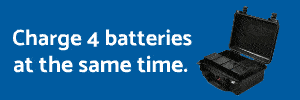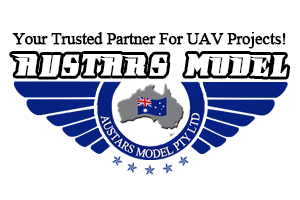- Joined
- Jun 28, 2014
- Messages
- 93
- Reaction score
- 59
So, looking at the proposed rules, I found what they propose to put on the test (p. 104, verbatim below). I know there are some pilots on here and others more familiar with aviation laws and procedures, so I'm wondering what good resources are out there to start learning these things. Books? Courses? Web sites?
And what about comparability to existing courses? Is this basically the same as ground school, or pretty different?
And what about comparability to existing courses? Is this basically the same as ground school, or pretty different?
Areas of Knowledge Tested on the Initial Knowledge Test
This proposed initial knowledge test would test the following areas of knowledge. First, the knowledge test would test whether the applicant knows the regulations applicable to small UAS operations. By testing the applicant’s knowledge of the applicable regulations, the proposed initial knowledge test would ensure that the applicant understands what those regulations require and does not violate them through ignorance.
Second, the initial knowledge test would test whether the applicant understands how to determine the classification of specific airspace and what the requirements are for operating in that airspace. To comply with the proposed airspace operating requirements, a small UAS operator would need to know how to determine the classification of the airspace in which he or she would like to operate.
Third, the initial knowledge test would test whether the applicant understands flight restrictions affecting small unmanned aircraft operations. The proposed initial knowledge test would test whether the applicant knows how to determine which areas are prohibited, restricted, or subject to a TFR in order to comply with the proposed flight restrictions in §§ 107.45 and 107.47.
Fourth, the initial knowledge test would test whether the applicant understands how to clear an obstacle during flight. As discussed previously, proposed § 107.37(b) prohibits a person from creating a collision hazard with, among other things, a ground structure. The proposed initial knowledge test would test whether the applicant understands what types of small unmanned aircraft maneuvers would create a collision hazard with a ground structure.
Fifth, the initial knowledge test would test whether the applicant understands the effects of weather and micrometeorology (weather on a localized and small scale) on small unmanned aircraft operation. Knowledge of weather is necessary for safe operation of a small unmanned aircraft because, due to the light weight of the small unmanned aircraft, weather could have a significant impact on the flight of that aircraft. For example, space around buildings, smokestacks and trees, which is safe during clear weather, could easily become hazardous in a windy situation. Accordingly, the proposed initial knowledge test would test whether an applicant understands the effect that different types of weather have on small unmanned aircraft performance and how to react to that weather. The proposed knowledge test would also test whether an applicant has knowledge of official sources that he or she can use to obtain weather information and predictions in order to plan the operation of the small UAS.
Sixth, the proposed knowledge test would test whether an applicant understands how to calculate the weight and balance of the small unmanned aircraft to determine impacts on performance. In order to operate safely, operators need knowledge and understanding of some fundamental aircraft performance issues, which include load balancing and weight distribution as well as available power for the operation.
Seventh, the operator of a small UAS may be presented with an emergency situation during an operation. Accordingly, the proposed initial knowledge test would test whether the applicant understands how to properly respond to an emergency.
Eighth, the proposed initial knowledge test would test the applicant’s understanding of aeronautical decision-making/judgment and crew resource management. Even though this proposed rule would limit the flight of a small unmanned aircraft to operations at or below 500 feet AGL, some manned aircraft will still operate in the same airspace as the small unmanned aircraft. Accordingly, the small UAS operator would need to understand the aeronautical decision-making and judgment that manned-aircraft pilots engage in so that he or she can anticipate how the manned aircraft will react to the small unmanned aircraft. The small UAS operator would also need to understand how to function in a team environment (this is known as crew resource management) because this proposed rule would permit the use of visual observers to assist the small UAS operator and would place the operator in charge of those observers.
Ninth, the proposed initial knowledge test would test the applicant’s understanding of airport operations and radio communication procedures, which would include standard terminology. While this proposed rule would limit small UAS operations in the vicinity of an airport, there are some instances where these operations would be permitted. For example, this proposed rule would allow a small unmanned aircraft to operate in Class B, C, or D airspace if the operator obtains prior ATC authorization. In order to operate safely near an airport, the operator would need to have knowledge of airport operations so that the small unmanned aircraft does not interfere with those operations. The operator would also need to have knowledge of radio communication procedures so that the operator can communicate with ATC.
Lastly, the proposed initial knowledge test would test whether the applicant understands the physiological effects of drugs and alcohol. Many prescription and over-the-counter medications can significantly reduce an individual’s cognitive ability to process and determine what is happening around him or her. Accordingly, an operator needs to understand how drugs and alcohol can impact his or her ability to safely operate the small UAS.
The FAA invites comments on the proposed areas of knowledge to be tested on the initial knowledge test. The FAA also invites comments as to whether the initial knowledge test should test any other areas of knowledge. If so, what additional areas of knowledge should be tested? What would be the costs and benefits of testing these other areas of knowledge?
This proposed initial knowledge test would test the following areas of knowledge. First, the knowledge test would test whether the applicant knows the regulations applicable to small UAS operations. By testing the applicant’s knowledge of the applicable regulations, the proposed initial knowledge test would ensure that the applicant understands what those regulations require and does not violate them through ignorance.
Second, the initial knowledge test would test whether the applicant understands how to determine the classification of specific airspace and what the requirements are for operating in that airspace. To comply with the proposed airspace operating requirements, a small UAS operator would need to know how to determine the classification of the airspace in which he or she would like to operate.
Third, the initial knowledge test would test whether the applicant understands flight restrictions affecting small unmanned aircraft operations. The proposed initial knowledge test would test whether the applicant knows how to determine which areas are prohibited, restricted, or subject to a TFR in order to comply with the proposed flight restrictions in §§ 107.45 and 107.47.
Fourth, the initial knowledge test would test whether the applicant understands how to clear an obstacle during flight. As discussed previously, proposed § 107.37(b) prohibits a person from creating a collision hazard with, among other things, a ground structure. The proposed initial knowledge test would test whether the applicant understands what types of small unmanned aircraft maneuvers would create a collision hazard with a ground structure.
Fifth, the initial knowledge test would test whether the applicant understands the effects of weather and micrometeorology (weather on a localized and small scale) on small unmanned aircraft operation. Knowledge of weather is necessary for safe operation of a small unmanned aircraft because, due to the light weight of the small unmanned aircraft, weather could have a significant impact on the flight of that aircraft. For example, space around buildings, smokestacks and trees, which is safe during clear weather, could easily become hazardous in a windy situation. Accordingly, the proposed initial knowledge test would test whether an applicant understands the effect that different types of weather have on small unmanned aircraft performance and how to react to that weather. The proposed knowledge test would also test whether an applicant has knowledge of official sources that he or she can use to obtain weather information and predictions in order to plan the operation of the small UAS.
Sixth, the proposed knowledge test would test whether an applicant understands how to calculate the weight and balance of the small unmanned aircraft to determine impacts on performance. In order to operate safely, operators need knowledge and understanding of some fundamental aircraft performance issues, which include load balancing and weight distribution as well as available power for the operation.
Seventh, the operator of a small UAS may be presented with an emergency situation during an operation. Accordingly, the proposed initial knowledge test would test whether the applicant understands how to properly respond to an emergency.
Eighth, the proposed initial knowledge test would test the applicant’s understanding of aeronautical decision-making/judgment and crew resource management. Even though this proposed rule would limit the flight of a small unmanned aircraft to operations at or below 500 feet AGL, some manned aircraft will still operate in the same airspace as the small unmanned aircraft. Accordingly, the small UAS operator would need to understand the aeronautical decision-making and judgment that manned-aircraft pilots engage in so that he or she can anticipate how the manned aircraft will react to the small unmanned aircraft. The small UAS operator would also need to understand how to function in a team environment (this is known as crew resource management) because this proposed rule would permit the use of visual observers to assist the small UAS operator and would place the operator in charge of those observers.
Ninth, the proposed initial knowledge test would test the applicant’s understanding of airport operations and radio communication procedures, which would include standard terminology. While this proposed rule would limit small UAS operations in the vicinity of an airport, there are some instances where these operations would be permitted. For example, this proposed rule would allow a small unmanned aircraft to operate in Class B, C, or D airspace if the operator obtains prior ATC authorization. In order to operate safely near an airport, the operator would need to have knowledge of airport operations so that the small unmanned aircraft does not interfere with those operations. The operator would also need to have knowledge of radio communication procedures so that the operator can communicate with ATC.
Lastly, the proposed initial knowledge test would test whether the applicant understands the physiological effects of drugs and alcohol. Many prescription and over-the-counter medications can significantly reduce an individual’s cognitive ability to process and determine what is happening around him or her. Accordingly, an operator needs to understand how drugs and alcohol can impact his or her ability to safely operate the small UAS.
The FAA invites comments on the proposed areas of knowledge to be tested on the initial knowledge test. The FAA also invites comments as to whether the initial knowledge test should test any other areas of knowledge. If so, what additional areas of knowledge should be tested? What would be the costs and benefits of testing these other areas of knowledge?






